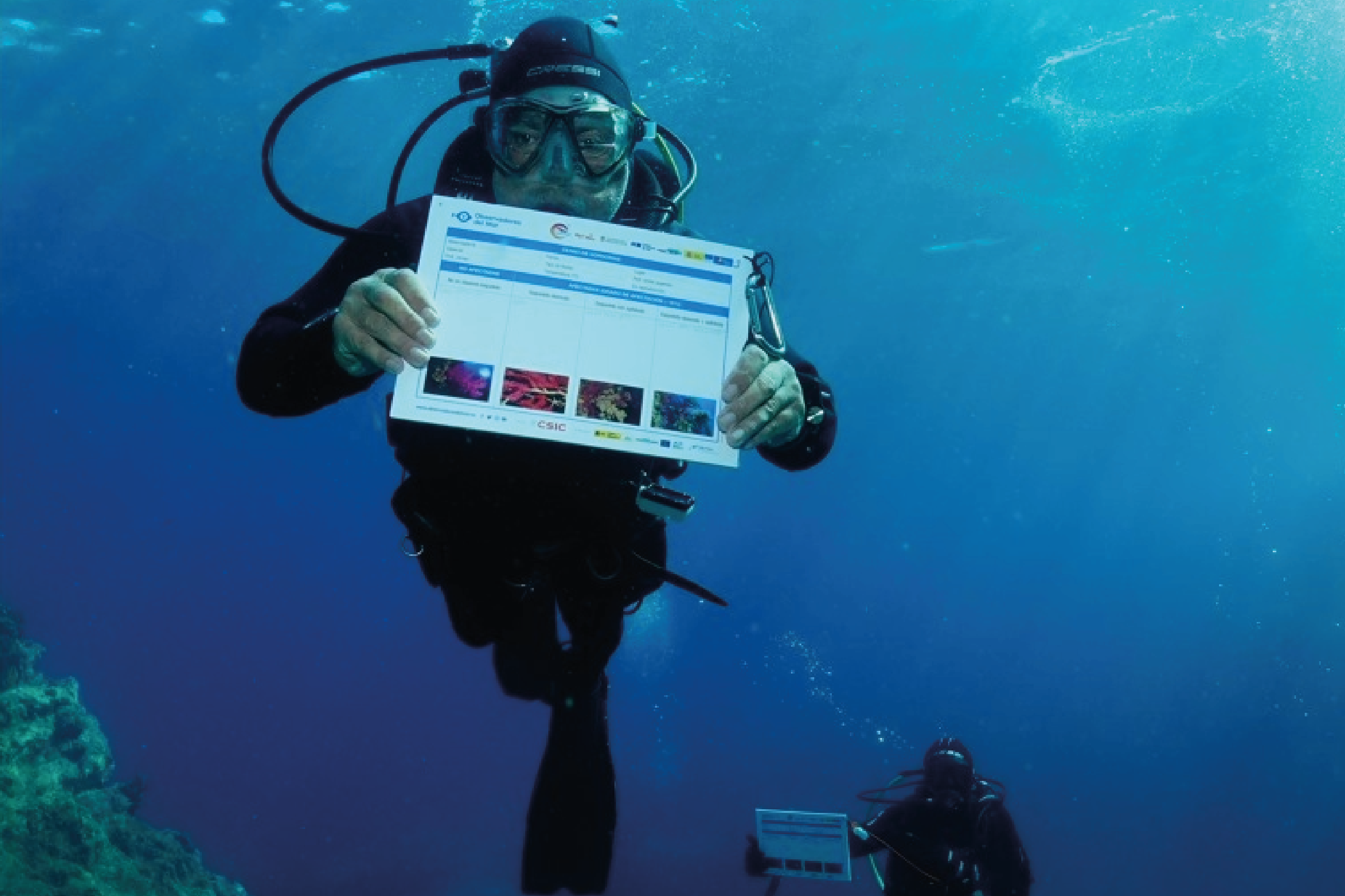News

A hundred censuses to check the health status of the gorgonians on the Costa Brava
More than 70 volunteer divers have evaluated the status of 54 populations of gorgonians
03/11/2023
In recent years, marine heat waves are affecting life in the Mediterranean, especially on those animals that live fixed to the substrate in coastal areas and cannot move to colder locations, such as corals and gorgonians.
To understand the impact of this phenomenon, during the months of September and October we organized the marine citizen science days Coralligenous weekends: diving trips with volunteers to check the health status of Mediterranean gorgonians.
In total, 17 divings have been carried out with the scientific team in various locations of the Costa Brava, specifically in the areas of Cap de Creus and Baix Empordà. Thanks to the involvement of the diving centers Club Nàutic Port de la Selva, Diving Center Cadaqués, Poseidón Roses, Begur Dive, Tritón Diving Center and H2O Diving Center, more than 70 volunteer divers have completed nearly a hundred of censuses with which they have evaluated the status of 54 populations of white gorgonians (Eunicella singularis) and red gorgonians (Paramuricea clavata).
The people involved underwent theoretical training and carried out adapted scientific censuses developed by the Warning Corals project of Observadores del Mar, which has made it possible to collect information in a systematic and rigorous way. The proposed diving areas have been Cap de Creus Norte, Cap de Creus Sur, Baix Empordà Norte and Baix Empordà Sur. For each one, several dives have been made at different points to obtain the broadest information possible. To see the results, check the hashtag #CorallWeekends at Twitter, Instagram, and Facebook.
A first view of the results shows numerous shallow populations (close to the surface) affected by mortality. Now is the time to analyze the data, combine it with temperature measurements and study each population in detail.
The Coralligenous weekends have been organized by the MedRecover research group of the University of Barcelona and the Institute of Marine Sciences of the CSIC, within the framework of the CORFUN project, funded by the Spanish Research Agency (TED2021-131622B-I00).
